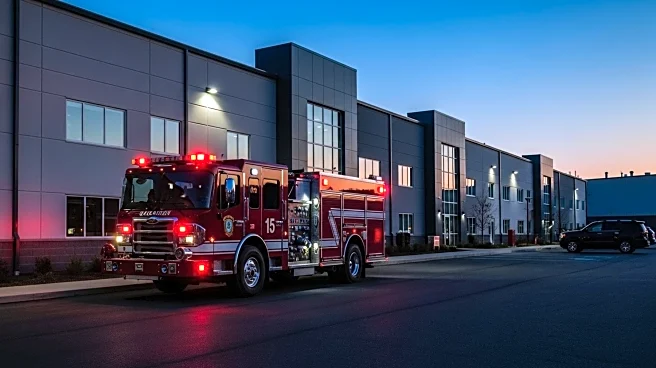What's Happening?
Ford Motor Company has temporarily suspended production of several vehicle models following a fire at Novelis' aluminum supply facility in upstate New York. The incident has led to a halt in the assembly of popular sport utility vehicles, including the three-row Expedition and Lincoln Navigator SUVs, at Ford's Kentucky Truck Plant. The suspension is set to last for seven days. Despite the disruption, Ford continues to produce its profitable F-series pickups, although the production remains vulnerable to supply chain risks due to the fire.
Why It's Important?
The temporary suspension of production at Ford's Kentucky Truck Plant highlights the critical role of supply chain management in the automotive industry. The affected models, such as the Expedition and Lincoln Navigator, are significant contributors to Ford's revenue, and any prolonged disruption could impact the company's financial performance. Additionally, the incident underscores the dependency of major automakers on their suppliers, which can lead to vulnerabilities when unforeseen events occur. The fire at Novelis' facility serves as a reminder of the importance of contingency planning and risk management in manufacturing operations.
What's Next?
Ford is likely to focus on mitigating the impact of the production halt by exploring alternative supply options or accelerating repairs at the Novelis facility. The company may also reassess its supply chain strategies to prevent similar disruptions in the future. Stakeholders, including investors and industry analysts, will be closely monitoring Ford's response to the situation and its ability to resume normal production levels. The incident may prompt discussions within the automotive industry about the need for diversified supply chains and increased resilience against unexpected events.
Beyond the Headlines
The fire at Novelis' facility could lead to broader discussions about the safety protocols and emergency preparedness of manufacturing plants. It may also raise questions about the environmental impact of such incidents, particularly in terms of emissions and waste management. As automakers increasingly rely on advanced materials like aluminum for vehicle production, ensuring the safety and reliability of supply chains becomes even more crucial.










